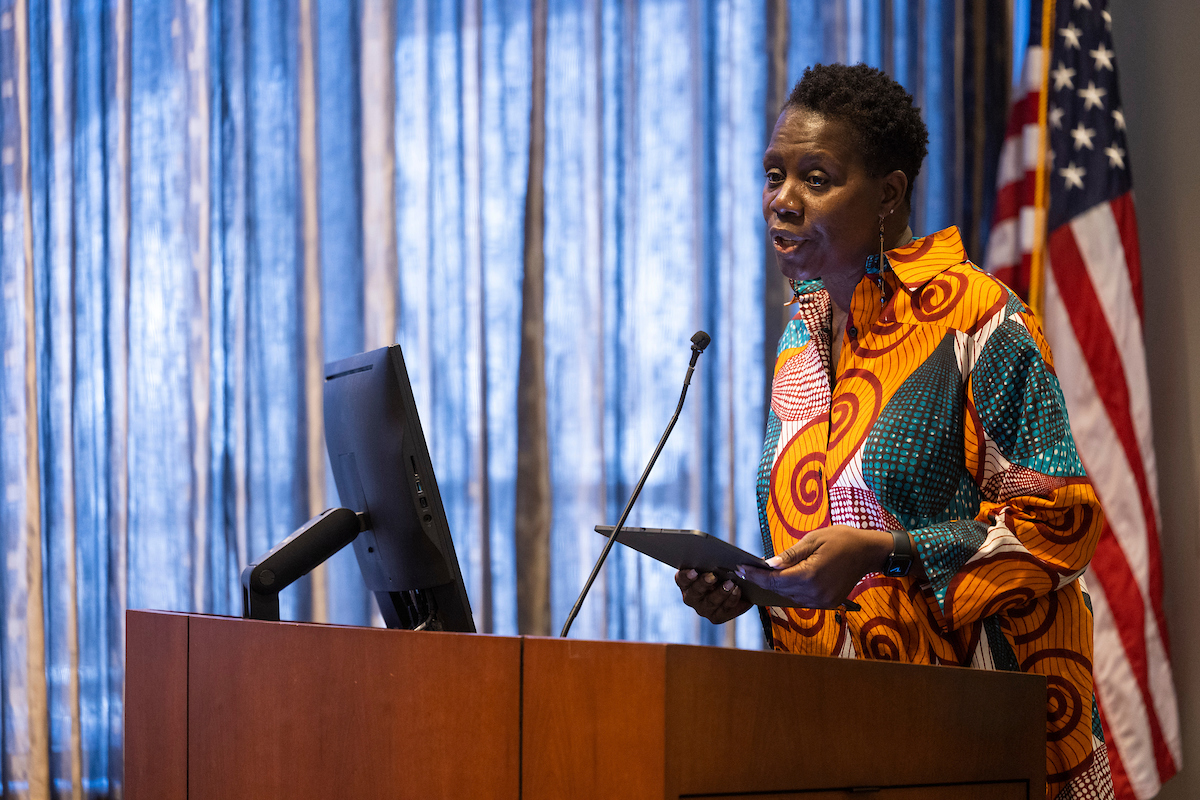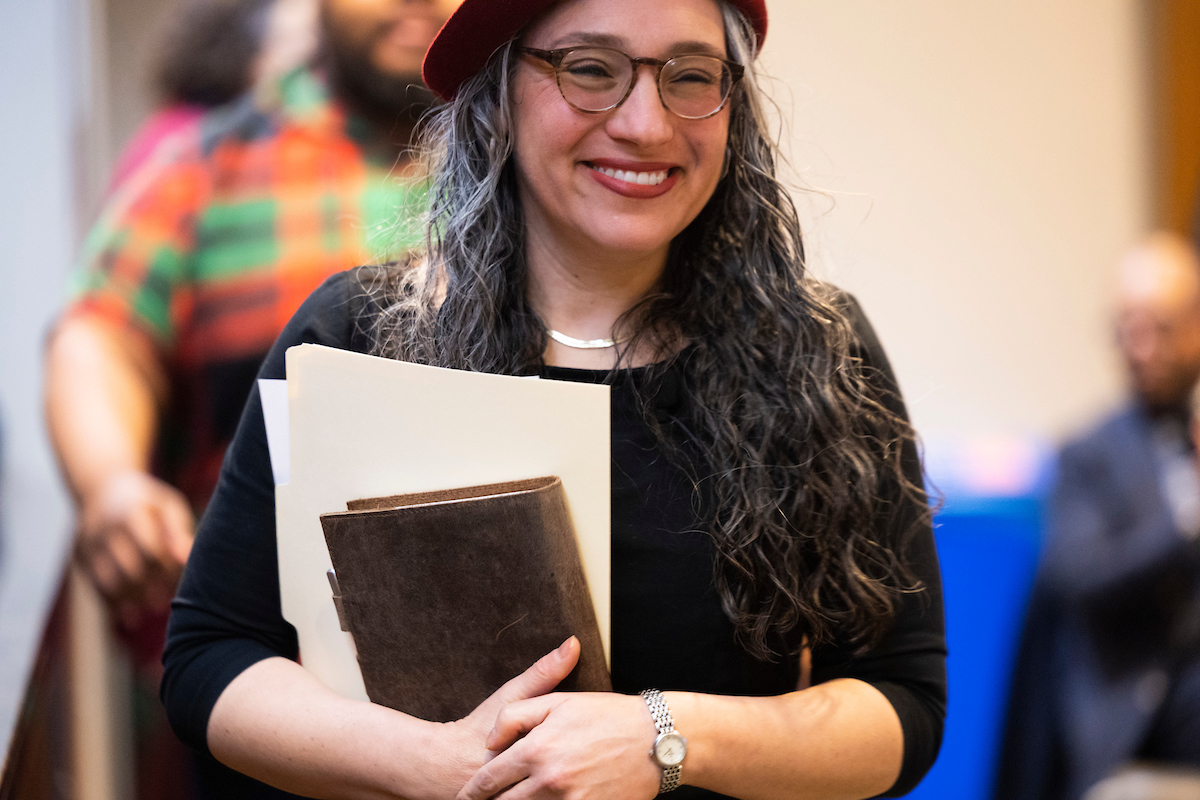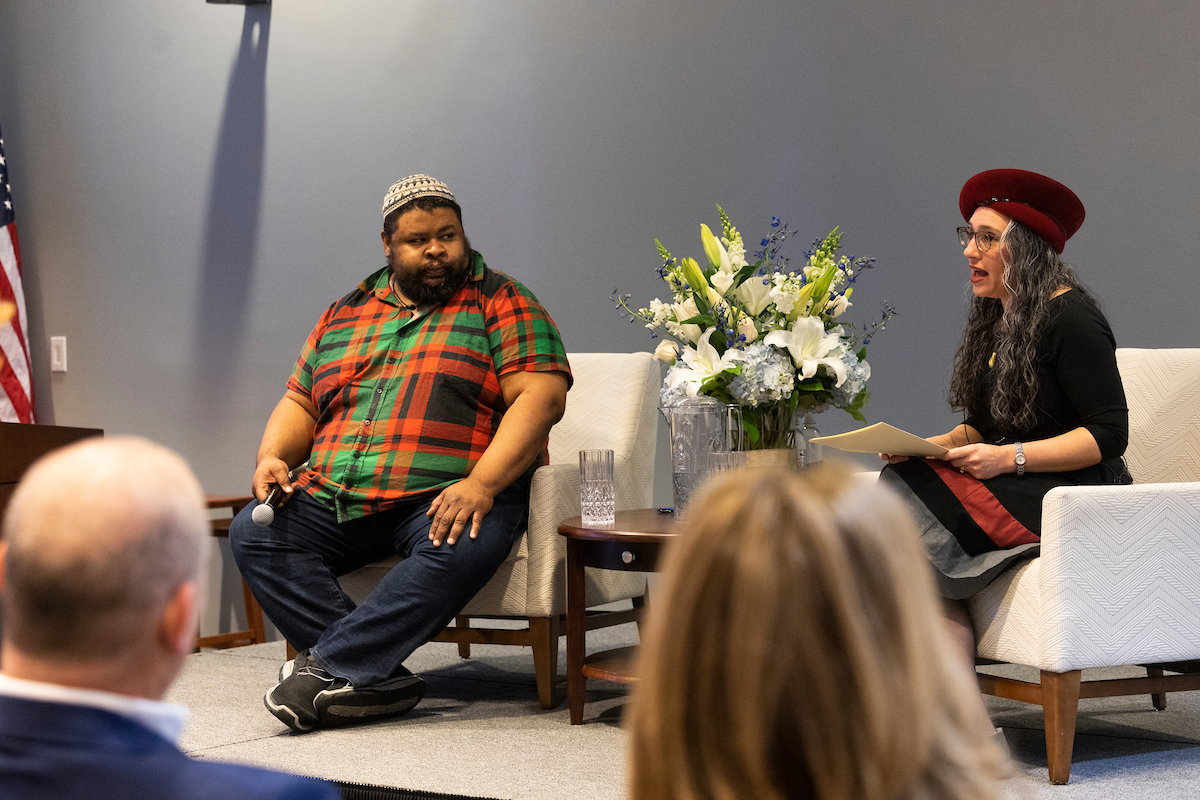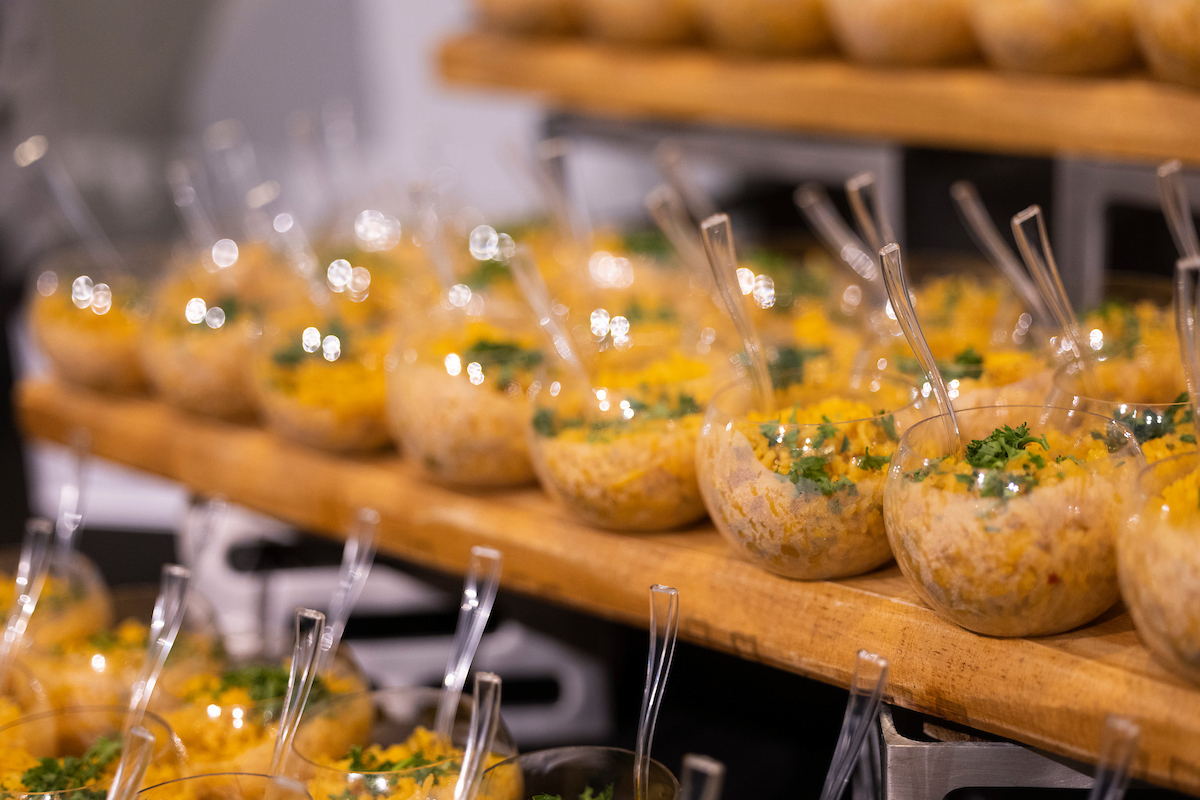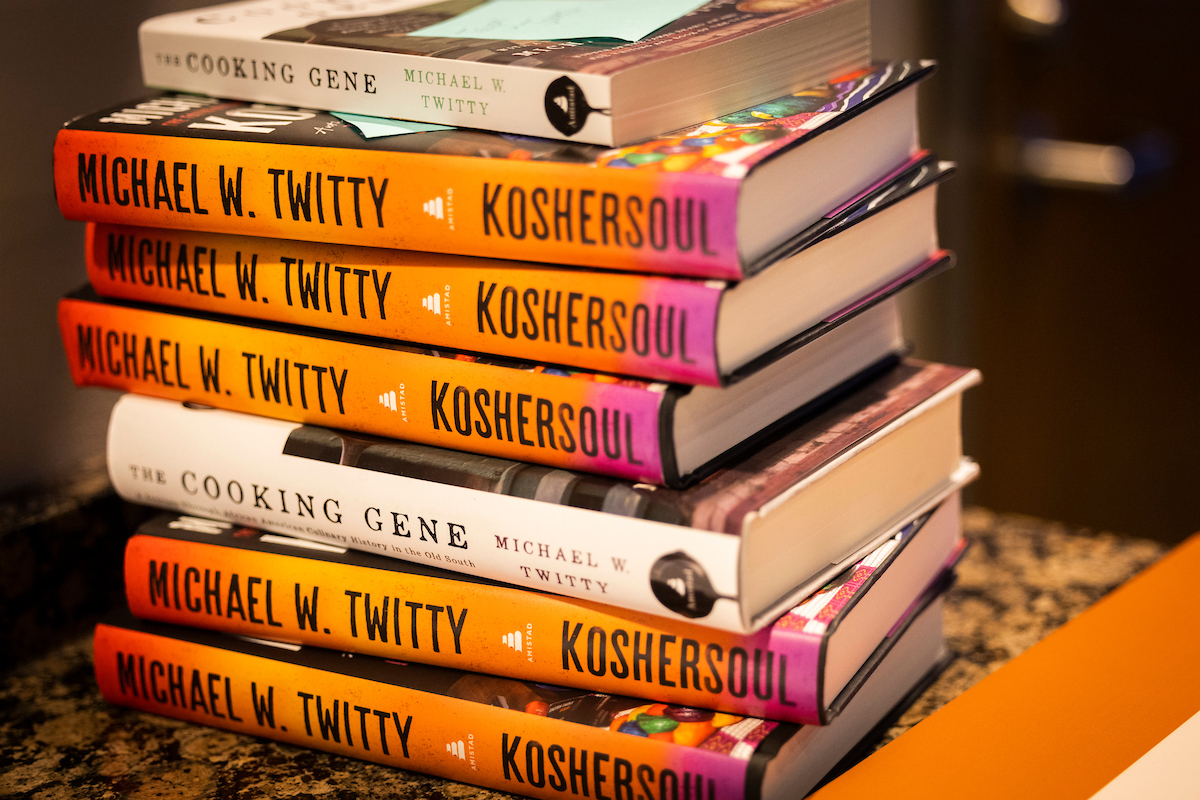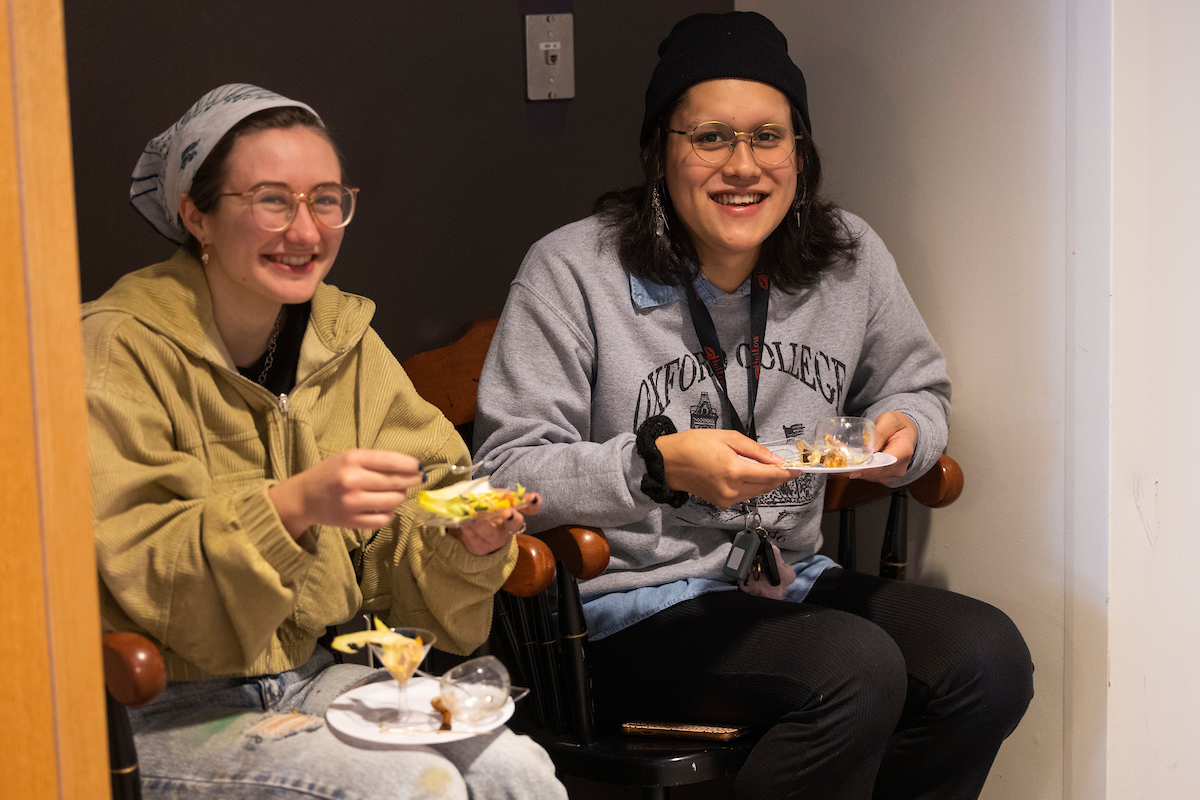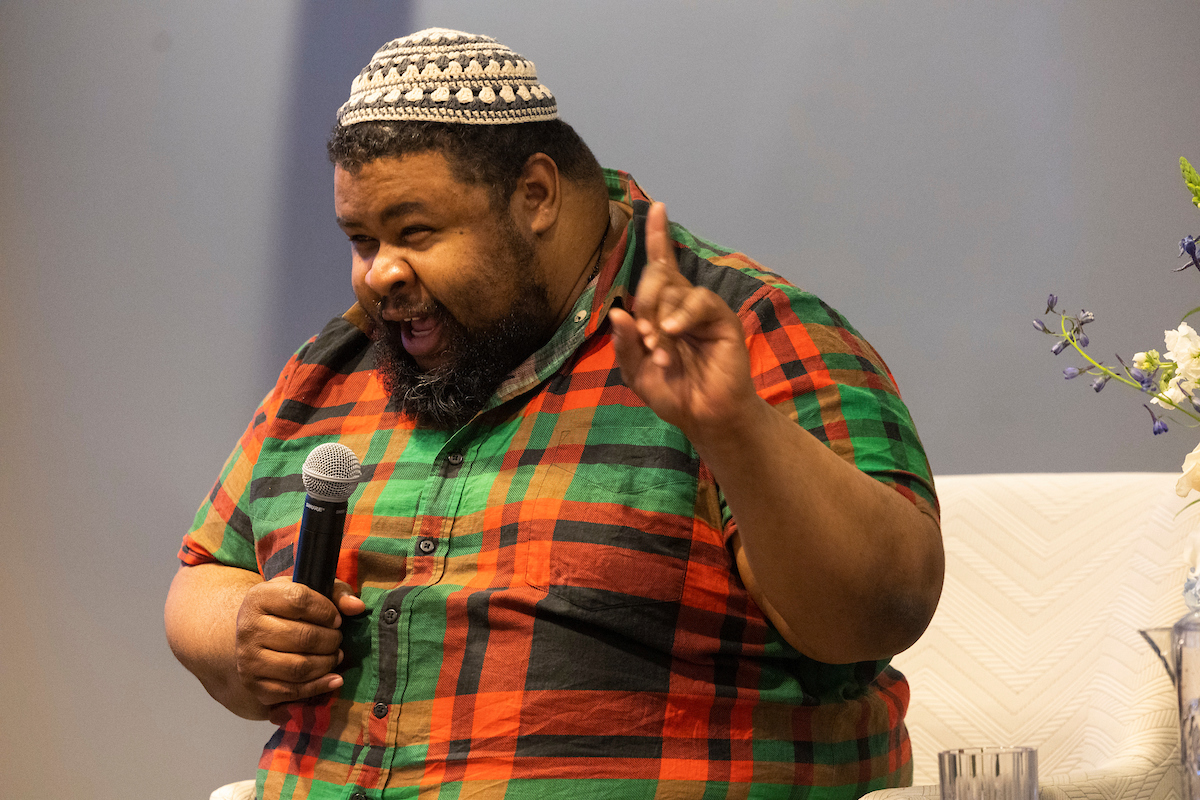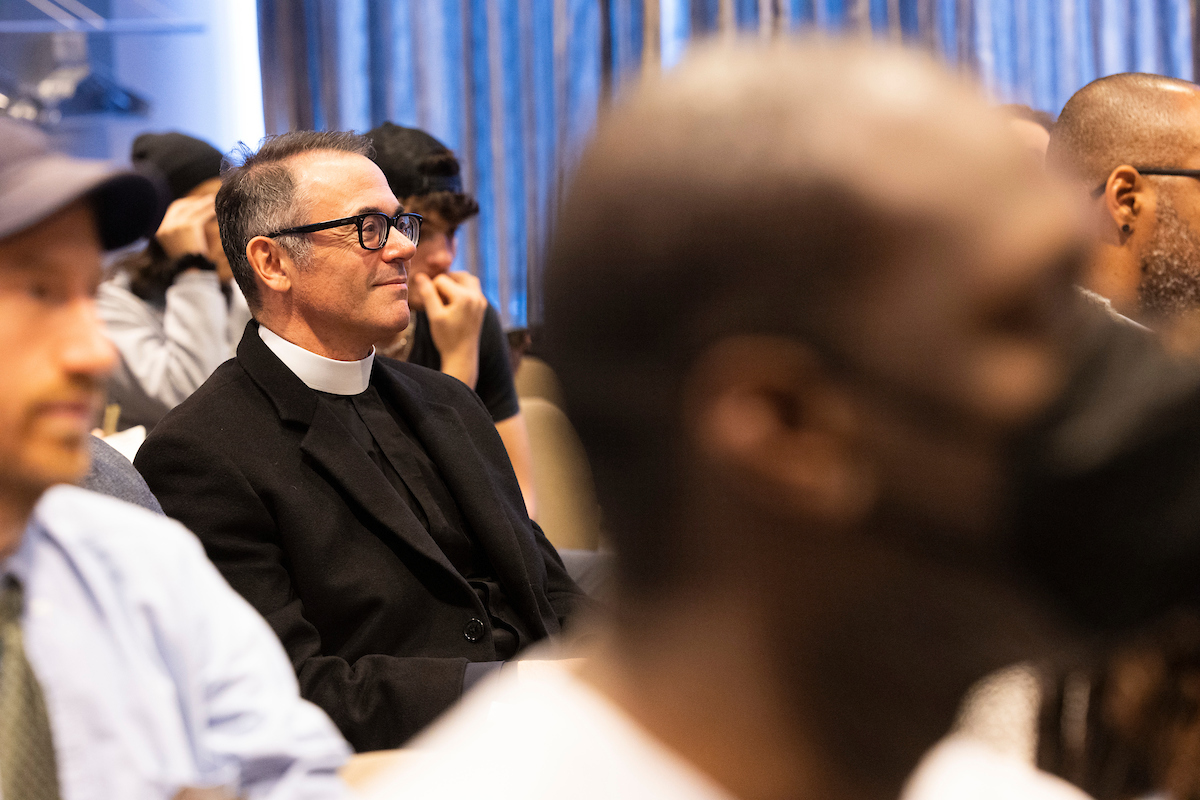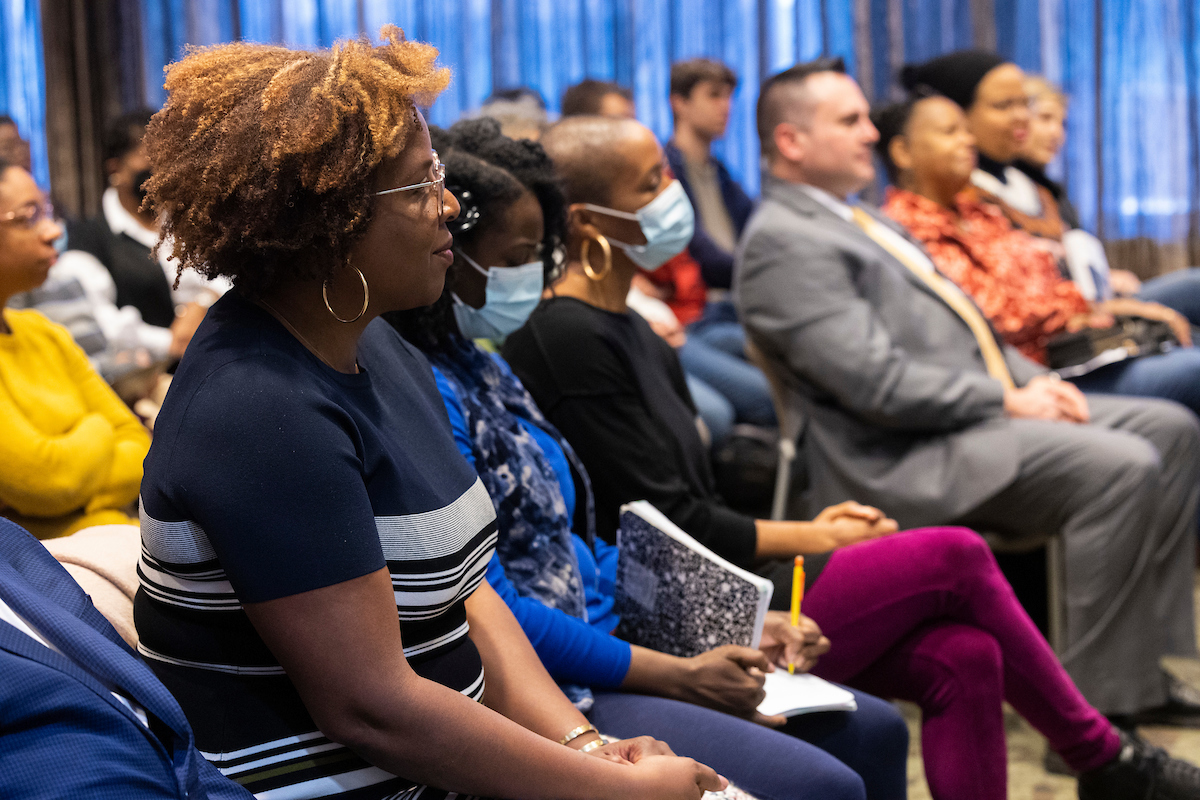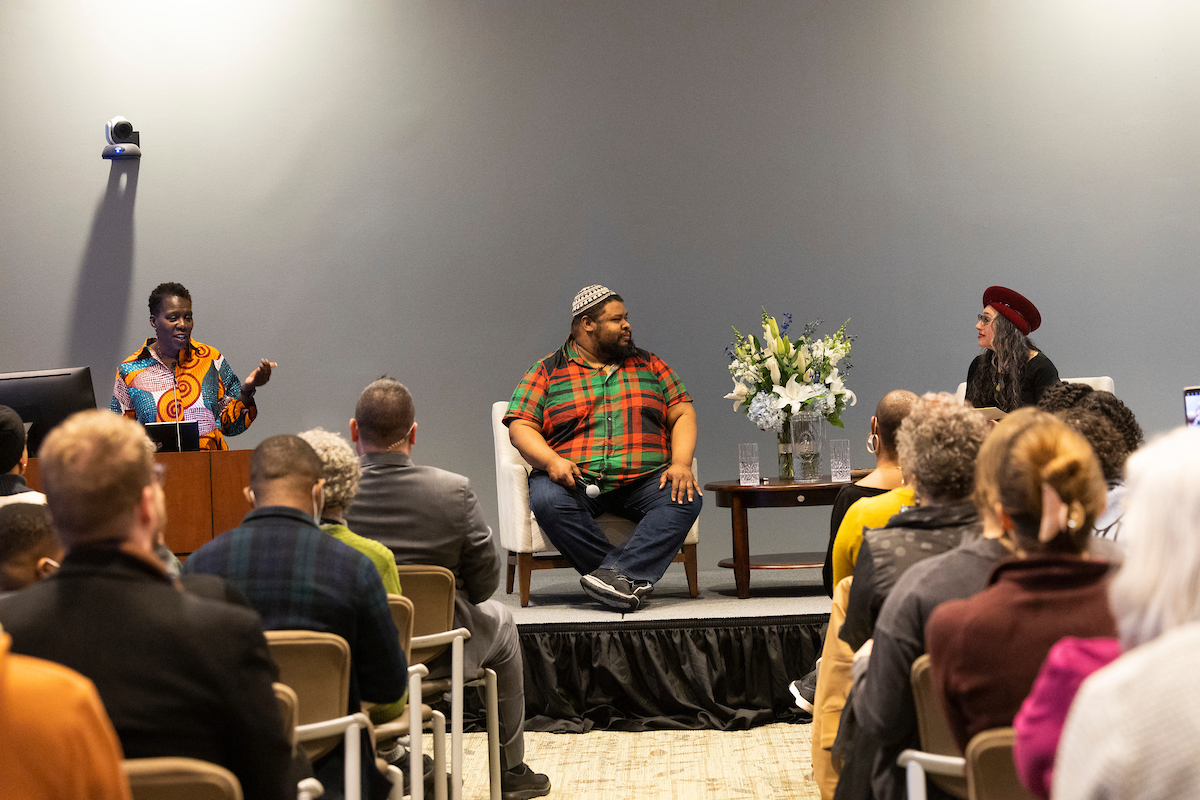
Feasting on the wisdom of culinary historian Michael Twitty
In a recent campus visit, culinary historian Michael Twitty held forth with erudition, humor and compassion — deepening appreciation of Black and Jewish foodways and making the case for embracing all that life in a multicultural society offers.
By Susan M. Carini 04G Feb. 6, 2023Michael Twitty is a lot of things — Black, Irish, Jewish, gay — but he is not a chef. As he told a capacity crowd in the Jones Room of the Robert W. Woodruff Library on Jan. 27: “A chef is a special kind of professional. That ain’t me. I am a grandma cook.” His cast-iron pots, he claimed, are the giveaway.
Those lucky enough to sample the superb food served at the event, based on his award-winning book “Koshersoul,” might challenge Twitty’s modesty. However, as a culinary historian, what he cooks up are the connections between the food we eat and how we understand ourselves and our cultural traditions.
Twitty appeared as part of the Identity, Inclusion and Sense of Belonging Series of the Office of Diversity, Equity and Inclusion. As Carol Henderson explained in her introduction, the series “seeks to explore the intersectionality of identity, bringing to bear thoughtful and authentic conversations centered on justice, truth, belonging and the common good.” Henderson, vice provost for diversity and inclusion, chief diversity officer and adviser to the president, partnered with the Office of Spiritual and Religious Life and the Tam Institute for Jewish Studies to bring Twitty here.
His appearance coincided with Emory’s honoring International Holocaust Remembrance Day. As Twitty responded to the questions posed by Miriam Udel, Judith London Evans Director of the Tam Institute and associate professor of Yiddish language, literature and culture, both agreed that an emphasis on resilience was the order of the day.
Much of Twitty’s message turned on the importance of insisting on one’s self-worth. As he noted: “People came out of the Shoah and out of enslavement, and we are still processing that. We are creating new things and new selves.”
How food defines us
Udel began the afternoon with this powerful quote from Primo Levi’s book “Survival in Auschwitz” — words, she said, “that would not let her go”:
“All took leave from life in the manner which most suited them. Some praying, some deliberately drunk, others lustfully intoxicated for the last time. But the mothers stayed up to prepare the food for the journey with tender care, and washed their children and packed the luggage; and at dawn the barbed wire was full of children’s washing hung out in the wind to dry. Nor did they forget the diapers, the toys, the cushions and the hundred other small things which mothers remember and children always need. Would you not do the same? If you and your child were going to be killed tomorrow, would you not give him to eat today?”
She then asked Twitty: “How did your journey into African American foodways begin by deepening your learning about the Holocaust?”
Twitty recalled his earlier life as a teacher in the Washington, D.C., area who took his students to the United States Holocaust Museum. Understanding one’s history, says Twitty, is a way of “showing respect for yourself, acknowledging and claiming your worth.” He then invoked his identity as a Black man and recalled the civil rights movement, asking: “Why would you get dressed up in your best suit to protest when you know a water hose or dog is going to tear it apart? Again, by having love for yourself.”
Udel wanted to know, “What are we really talking about when we talk about food?” Twitty’s response was: “Food is not just ‘I am hungry.’ History becomes a lot more palatable, pun intended, when we can use food to tell stories.”
Twitty also made the case that “no one treats foods quite like the Black and Jewish traditions. We tend to talk about meals we have had when we get together because, when you are an unsettled people, you dwell on the luxury of the past and hope for the future.”
Asked by an undergraduate specifically about the use of fermentation, Twitty observed that “there is not a lot of fermentation in Afro-Atlantic food ways. Why? What is the principal ingredient in fermentation? Time. What was the thing that the enslaved were denied? Time.”
“Let’s get this straight. Judaism is not just a religion, and Blackness is not just a phenotype. Both are a feeling, a culture, a peoplehood, a knowledge system with many branches.”
Intrigued by Twitty’s rendering of “koshersoul” as one word, Udel was curious about how he defined the term. “Koshersoul is an evolving, dynamic approach to the way Jews of African descent celebrate their lives, celebrate each other and teach about our community,” said Twitty.
Both Cooking Gene: A Journey Through African American Culinary History in the Old South” (2018; winner of the James Beard Award for best writing and book of the year) and “Koshersoul: The Faith and Food Journey of an African American Jew” (2022) were available for signing after the event. At this year’s National Jewish Book Awards, “Koshersoul” was named the Everett Family Foundation Book of the Year, the first time that a Black author was so honored.
Udel, who also is an Orthodox rabbi, described getting to know Twitty: “His work sings and sizzles with the energy of the multiple traditions of resilience that he unites in his person. His journey into African American foodways was sparked by deepening his learning about the Holocaust, and his brand of koshersoul is infused with the melding flavors of the ancestral past that formed him as well as his aspirations for shaping the future as a teacher and writer.”
The road to becoming whole
“I want people to understand that, in my toolbox of identities, I use parts of myself to repair other parts of myself. Taking joy in your culture, in who you are, is part of healing,” he noted.
Twitty touched on kintsugi, the Japanese art of mending broken vessels with gold or other metallic lacquer. “What is the gold we use to repair ourselves?” he asked. “It is our food, our oratory, our social justice and moral suasion, our style.” And then, to smiles all around, he called out Henderson as an embodiment of style.
Intersectionality is a shared trait, one that Twitty urged listeners not to shy away from.
“We are all intersectional in some way. And if you are not aware of how ‘contaminated’ you are, happily contaminated, you are not doing America right. In fact, you are forfeiting what it means to live in a multicultural society,” he advised.
And we are not just intersectional but interdependent.
“When you acknowledge the interdependence of the human soul, spirit and body, and our familyhood to each other no matter where we come from or what we look like, you will not interact with the world in the same way ever again,” Twitty said.
Offering a window into his spiritual world, Twitty choked up when he observed: “I love the moment on Saturday night when we say, ‘And the Jews have light and joy.’”
Rev. Gregory W. McGonigle, dean of religious life and university chaplain, summed up what he heard: “Michael Twitty expressed the deeply intersecting spiritual, cultural and personal identities so many of us bring to campus and community today, and spoke eloquently about how the different parts of us might nourish, heal and strengthen the others. In a time when we need to do this communally, he kindled the flames of how we might seek such wholeness, while setting out a magnificent feast for the mind, body and soul.”
Twitty concluded by saying: “My life is in God’s cookbook, and it’s a darn good recipe.”
All photos by Kay Hinton, Emory Photo/Video.

